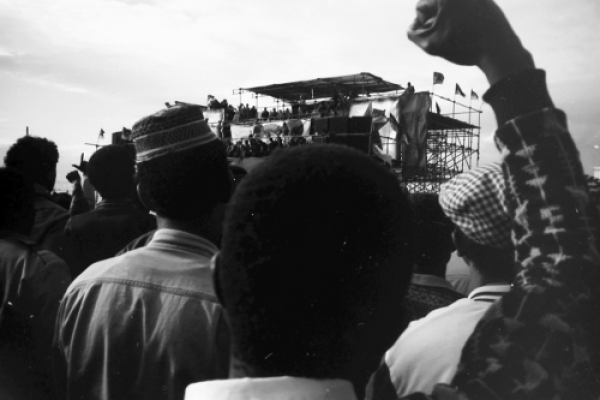A brief history of May Day

The basic demand of May Day was for an eight-hour working day —eight for work, eight for leisure and eight for sleep. It is something we still have to achieve, not just in South Africa, but in many other countries.
The first eight-hour day demand was made by organised workers in Australia in 1856.
It was taken up 30 years later in Chicago when a general strike was called by workers making primarily the same demand. The powers that be drafted in a strong police presence to break the strike. The police opened fire, killing four strikers and wounding several others.
In the outcry that followed, a protest meeting in the Haymarket Square in Chicago was called for 4 May. But no sooner had the crowd gathered, than the police baton charged and someone — until today nobody knows who — threw a bomb and a policeman died.
Five anarchists, including three who had been speakers on the platform at the time, were arrested and charged with murder on a similar common purpose basis that has seen 270 Marikana strikers charged with the murder of 34 miners shot dead by police in 2012. One of the anarchists died in detention and the other four were hanged, passing into labour movement history as the “Haymarket martyrs”.
Those deaths gave impetus to the establishment of 1 May as a day of international labour solidarity that was first celebrated in South Africa in 1904. But in a deeply racist society, the demand for an eight-hour day became secondary.
For example, this was how a newspaper described a May Day march in Johannesburg in 1931: “… a bedraggled procession in which dirty looking natives of the lowest class marched shoulder to shoulder with Europeans, many of them of obvious low mentality”.
Those days are now past. Today May Day is a holiday. But, in general, it has been two steps forward, one step back. So, since 1996 labour laws have, on paper at least, protected workers from gross exploitation. And we have a Bill of Rights and Constitution that — again, in theory — provides equal protection, rights and duties for all citizens.
However, in a grossly unequal society, there can never be equal rights. As a French writer once put it, the law “in its majestic equality equally forbids rich and poor alike from sleeping under bridges, begging in the streets and stealing bread”.
And workers still do not have universal acceptance of the eight-hour day.
Support independent journalism
Donate using Payfast

Don't miss out on the latest news
We respect your privacy, and promise we won't spam you.
Next: Why Abahlali endorsed the DA: S’bu Zikode speaks to GroundUp
Previous: GroundUp Newsletter 29 April - 02 May 2014: Porta potties hit Bishopscourt and other stories

This article is licensed under a Creative Commons Attribution-NoDerivatives 4.0 International License.
